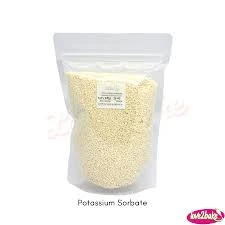
Exploring the Applications and Benefits of Phosphoric Acid in Industry and Agriculture
The Importance of Phosphoric Acid in Industry and Agriculture
Phosphoric acid, with the chemical formula H₃PO₄, is a mineral acid that plays a crucial role in various industries and agricultural practices. It is a colorless, odorless liquid that is highly soluble in water, making it a versatile compound used in numerous applications ranging from food processing to the manufacture of fertilizers.
Industrial Applications
In the industrial sector, phosphoric acid is primarily used in the production of fertilizers. As a key ingredient in many phosphate fertilizers, it provides essential phosphorus, one of the three primary macronutrients (along with nitrogen and potassium) necessary for plant growth. Phosphorus promotes root development, enhances flowering, and improves fruit quality, making it a vital component in agricultural production.
The production of phosphoric acid typically starts with phosphate rock, which is mined and then treated with sulfuric acid in a process known as the wet process. This method produces phosphoric acid alongside gypsum as a byproduct. The resultant phosphoric acid can be further purified and concentrated for various applications.
In addition to fertilizers, phosphoric acid is used in the food industry as a food additive. It serves as an acidity regulator, helping to preserve food products and enhance their flavor. Common applications include soft drinks where it provides a tangy flavor, as well as processed cheeses and some baked goods. Moreover, phosphoric acid plays a significant role in the pharmaceutical industry, where it is utilized in the production of various medications.
Environmental Considerations
phosphoric acid

While phosphoric acid is essential for agricultural productivity and industrial processes, it is vital to recognize the environmental implications of its usage. Excessive application of phosphoric acid-based fertilizers can lead to nutrient runoff, causing eutrophication in water bodies. This process results in excessive growth of algae, which depletes oxygen in the water and negatively impacts aquatic ecosystems.
To mitigate these environmental concerns, sustainable agricultural practices are being adopted. These include precision farming techniques that ensure fertilizers are applied more efficiently, reducing runoff and enhancing crop yields. Researchers are also exploring alternative sources of phosphorus to lessen the dependency on mined phosphate rock, which is a finite resource.
The Future of Phosphoric Acid
In recent years, there has been an increasing focus on the responsible management of phosphorus resources. As global populations grow and the demand for food production intensifies, sustainable practices in the use of phosphoric acid become crucial. Innovations in recycling phosphorus from waste materials, such as agricultural runoff and wastewater, are gaining traction and could provide a more sustainable source of this vital nutrient.
Additionally, advancements in biotechnology offer promising avenues for enhancing phosphorus efficiency in crops. Genetically modified plants that require less phosphorus could significantly reduce the demand for phosphoric acid fertilizers, promoting more sustainable agricultural practices.
Conclusion
Phosphoric acid is an integral part of modern agriculture and industry, providing essential nutrients and improving manufacturing processes. However, environmental considerations must be taken into account to ensure the sustainable use of this compound. By adopting innovative practices and technologies, the industry can continue to benefit from phosphoric acid while minimizing its ecological impact. As we move forward, balancing productivity with environmental stewardship will be key to securing a sustainable future for agriculture and industry alike.
-
The Safety Challenges of Ammonium Nitrate FertilizerNewsJun.26,2025
-
The Critical Role of Mining ChemicalsNewsJun.26,2025
-
Shelf Life of Glacial Acetic Acid Food GradeNewsJun.26,2025
-
Enhancing PVC Longevity with 1,2,3-Benzotriazole InnovationsNewsJun.26,2025
-
China’s Dominance in Food Additive ProductionNewsJun.26,2025
-
Can Aluminum Hydroxide Replace More Toxic Alternatives?NewsJun.26,2025
-
PE and PP Plastics with Benzotriazole AdditivesNewsJun.12,2025
Hebei Tenger Chemical Technology Co., Ltd. focuses on the chemical industry and is committed to the export service of chemical raw materials.
-

view more DiethanolisopropanolamineIn the ever-growing field of chemical solutions, diethanolisopropanolamine (DEIPA) stands out as a versatile and important compound. Due to its unique chemical structure and properties, DEIPA is of interest to various industries including construction, personal care, and agriculture. -

view more TriisopropanolamineTriisopropanolamine (TIPA) alkanol amine substance, is a kind of alcohol amine compound with amino and alcohol hydroxyl, and because of its molecules contains both amino and hydroxyl. -

view more Tetramethyl Thiuram DisulfideTetramethyl thiuram disulfide, also known as TMTD, is a white to light-yellow powder with a distinct sulfur-like odor. It is soluble in organic solvents such as benzene, acetone, and ethyl acetate, making it highly versatile for use in different formulations. TMTD is known for its excellent vulcanization acceleration properties, which makes it a key ingredient in the production of rubber products. Additionally, it acts as an effective fungicide and bactericide, making it valuable in agricultural applications. Its high purity and stability ensure consistent performance, making it a preferred choice for manufacturers across various industries.











